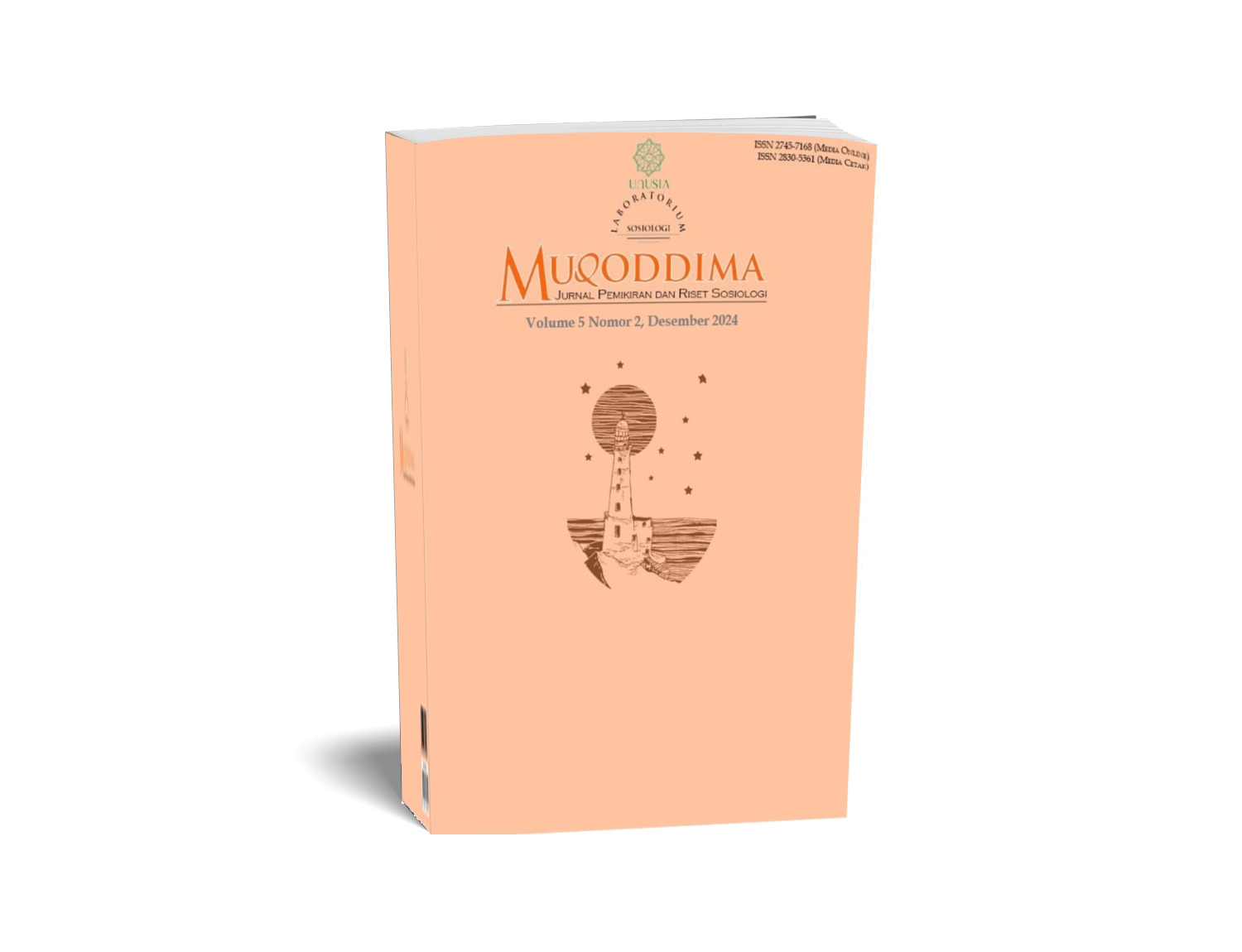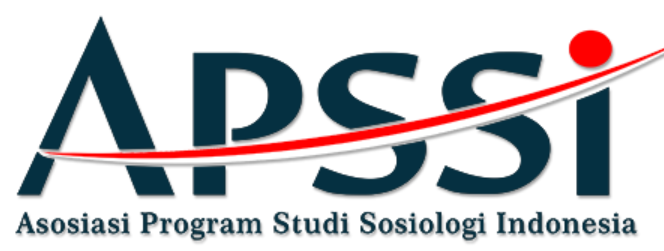The Objectives of Islamic Education from Quraish Shihab’s Perspective in the Digital Era
DOI:
https://doi.org/10.47776//MJPRS.005.02.07Keywords:
Purpose of Islamic Education, Quraysh Shihab, Digital AgeAbstract
This research aims to analyze the concept of education in surah Al-Baqarah verse 30 towards the objectives of Islamic education in the digital era from the perspective of M Quraish Shihab. This research was conducted using a library research approach, which collects data through books, scientific articles, journals, and written sources that aim to obtain in-depth analysis related to research studies. The results showed that the concept of the Qur'an Surah Al-Baqarah verse 30 in the perspective of M. Quraish Shihab emphasizes fostering humans personally and in groups so that they are able to carry out their functions as servants and caliphs who emphasize human responsibility as representatives of Allah on earth, forming the goals of Islamic education that develops moral character, social responsibility, intellectual competence. Islamic education must integrate spiritual values with the development of science and technology to prepare students who are able to become leaders who contribute positively to society.
Downloads
References
Abdalla, Mohamad, Dylan Chown, and Nadeem Memon. 2022. “Islamic Studies in Australian Islamic Schools: Educator Voice.” Journal of Religious Education 70(1):25–42. doi: 10.1007/s40839-022-00164-y. DOI: https://doi.org/10.1007/s40839-022-00164-y
Agri, Imam Habib, and Achyar Zein. 2024. “Ekoliterasi Lingkungan Hidup Dalam Alquran.” Kamaya: Jurnal Ilmu Agama 7(2):101–13. DOI: https://doi.org/10.37329/kamaya.v7i2.3205
Alkandari, Kalthoum. 2024. “Engagement, Interaction, and Socialization of Islamic Education Pre-Service Teachers through Virtual Discussions.” SAGE Open 14(2):1–18. doi: 10.1177/21582440241255844. DOI: https://doi.org/10.1177/21582440241255844
Arar, Khalid, and Kussai Haj-Yehia. 2018. “Perceptions of Educational Leadership in Medieval Islamic Thought: A Contribution to Multicultural Contexts.” Journal of Educational Administration and History 50(2):69–81. doi: 10.1080/00220620.2017.1413341. DOI: https://doi.org/10.1080/00220620.2017.1413341
Armedi, Rama, Pasca Sarjana, Konsep Pendidikan Islam, H. M. Thabib Umar, and Rahmah El Yunusiah. 2024. “ANALISIS KOMPARATIF KONSEP PENDIDIKAN ISLAM MAHMUD YUNUS DAN PENDIDIKAN MODERN : STUDI RELEVANSI.” 18(01):25–37.
Arya Rahardja, Muhammad Nurfaizi, Anggi Afrina Rambe, Miftahul Jannah Akmal, Annisa Ningtias Cevie Putri, Regita Ayu Dwietama, and Endis Firdaus. 2024. “Menuju Super Smart Era 5.0: Tantangan Baru Dan Pengembangan Kurikulum Pendidikan Agama Islam.” Al-Hikmah: Jurnal Agama Dan Ilmu Pengetahuan 21(1):65–82. doi: 10.25299/al-hikmah:jaip.2024.vol21(1).16480. DOI: https://doi.org/10.25299/al-hikmah:jaip.2024.vol21(1).16480
Bowen, William G., Andrew Delbanco, Howard Gardner, John L. Hennessy, and Daphne Koller. 2013. “Higher Education in the Digital Age.” Higher Education in the Digital Age 628–38. doi: 10.1515/9781400866137. DOI: https://doi.org/10.1515/9781400866137
Cheng, Jiangang, Wei Han, Qian Zhou, and Shuyan Wang. 2023. Handbook of Teaching Competency Development in Higher Education. DOI: https://doi.org/10.1007/978-981-99-6273-0
Daimah. 2018. “Pemikiran Muhammad Quraish Shihab (Religius Rasional) Tentang Pendidikan Islam Dan Relevansinya Terhadap Dunia Modern.” Madaniyah 8(2):173–85.
Damayanti, Wiwik, Hasep Saputra, and Abdul Rahman. 2024. “Tafsir Tarbawi Terhadap Nilai-Nilai Pendidikan Akhlak Dalam Al-Quran Surat Al-Baqarah Ayat 30-39.” Indonesian Journal of Innovation Multidisipliner Research 2(4):13–20. doi: 10.31004/ijim.v2i4.92. DOI: https://doi.org/10.31004/ijim.v2i4.92
DeJaeghere, Joan, Bich Hang Duong, and Vu Dao. 2023. “Quality of Teaching and Learning: The Role of Metacognitive Teaching Strategies in Higher-Performing Classrooms in Vietnam.” Educational Research for Policy and Practice 22(2):239–58. doi: 10.1007/s10671-023-09330-x. DOI: https://doi.org/10.1007/s10671-023-09330-x
Farhan Syahendra, Okta. 2024. “Tantangan Dan Inovasi Pendidikan Islam Di Era Digital: Membangun Generasi Berkarakter Di Era Modern.” Jurnal Bintang Pendidikan DanBahasa 2(3):74–89. DOI: https://doi.org/10.59024/bhinneka.v2i3.839
Farida Jaya. 2020. “Konsep Dasar Dan Tujuan Pendidikan Dalam Islam: Ta’lim, Tarbiyah Dan Ta’dib.” Jurnal Tazkiya IX(1):63–79.
Fitriani Permatasari, Rini. 2024. “Positive Parenting Dalam Mendidik Anak Masa Kini Perspektif Quraish Shihab.” Cons-Iedu 4(1):139–46. doi: 10.51192/cons.v4i1.783. DOI: https://doi.org/10.51192/cons.v4i1.783
Gillespie, Christina Hyer. 2023. “Theories of Immanence as a Way Forward for Teacher Education.” Studies in Philosophy and Education 42(6):633–47. doi: 10.1007/s11217-023-09902-7. DOI: https://doi.org/10.1007/s11217-023-09902-7
Hajri, Muhammad Fatkhul. 2023. “Pendidikan Islam Di Era Digital: Tantangan Dan Peluang Pada Abad 21.” Al-Mikraj 4(1):33–41.
Hamid, Ahmad Romzi. n.d. “Pengertian Ta’lim Dalam Al - Qur’an.” (2).
Hasibuan, Ulfah Salwa, Putri Intan Utami, Shinta Novia, and Cucu Surahman. 2024. “Konsep Khalifah Dalam Qs . Al-Baqarah / 2 : 30 Dan Implikasinya Terhadap Tujuan Pendidikan Islam Di Era Society 5 . 0.” 13(2):272–85. doi: 10.15408/quhas.v13i2.42166. DOI: https://doi.org/10.15408/quhas.v13i2.42166
Ilmiah, Jurnal, and Multi Sience. 2020. “Jurnal Ilmiah Multi Sience.” 2(1):141–63.
Iqlamatul Usna, Noeny. 2021. “Pendidikan Islam Dalam Perspektif Quraish Shihab.” Tadabbur: Jurnal Peradaban Islam 3(2):438–65. doi: 10.22373/tadabbur.v3i2.388. DOI: https://doi.org/10.22373/tadabbur.v3i2.388
Karya, Tafsir Al-misbah, and Quraish Shihab. 2016. “HODRIANSAH PROGRAM STUDI PENDIDIKAN ISLAM PROGRAM PASCASARJANA IAIN JEMBER i KONSEP TA ’ LIM DALAM AL-QURAN PERSPEKTIF TAFSIR AL-MISBAH KARYA QURAISH SHIHAB TESIS Diajukan Kepada Institut Agama Islam Negeri Jember Untuk Memenuhi Salah Satu Persyaratan Mem.”
Marx, Christian, Annika Goeze, Augustin Kelava, and Josef Schrader. 2022. “Teachers and Trainers in Adult Education–Investigating the Dimensionality of Their Knowledge about Methods and Concepts of Teaching and Learning.” Zeitschrift Für Weiterbildungsforschung 45(1):107–32. doi: 10.1007/s40955-022-00214-w. DOI: https://doi.org/10.1007/s40955-022-00214-w
Moeis, Faizal Rahmanto. 2022. “Unraveling the Myth of Madrasah Formal Education Quality in Indonesia: A Labor Quality Approach.” Educational Research for Policy and Practice 21(2):177–200. doi: 10.1007/s10671-021-09298-6. DOI: https://doi.org/10.1007/s10671-021-09298-6
Mubarok, Andika. 2022. “Kelestarian Lingkungan Dalam Al-Qur’an: Analisis Pemikiran M. Quraish Shihab Dalam Tafsir Al-Misbah.” Hikmah 19(2):227–37. doi: 10.53802/hikmah.v19i2.174. DOI: https://doi.org/10.53802/hikmah.v19i2.174
Muin, M. Tamsil. n.d. “Konsep Pendidikan Anak Di Era Digital Dalam Perspektif Al- Qur ’ an.” 65–73. DOI: https://doi.org/10.36769/tarqiyatuna.v3i2.617
Nganjuk, Pangeran Diponegoro. 2024. “Integrasi Konsep Tasawuf Quraish Shihab Dalam Pendidikan Agama Islam.” 10(2):425–40. DOI: https://doi.org/10.53429/spiritualis.v10i2.1106
Sada, Heru Juabdin. 2015. “Pendidik Dalam Pesrspektif Al-Qur’an.” Al-Tadzkiyyah: Jurnal Pendidikan Islam 6:93–105.
Sarah Dalila Fitri, Rodia Rotani Rianda, Bella Anggraini, Lara Dwi Alma, and Wismanto Wismanto. 2024. “Konsep Tujuan Pendidikan Islam Menurut Muhammad Quraish Shihab Dalam Qs Al- Baqarah Ayat 30, Qs Hud Ayat 61, Qs Adz- Dzariyat Ayat 56.” Jurnal Budi Pekerti Agama Islam 2(3):43–55. doi: 10.61132/jbpai.v2i3.296. DOI: https://doi.org/10.61132/jbpai.v2i3.296
Schwarz-Franco, Orit. 2024. “Education - Servant of Many Masters or an End in Itself? Handling Confusions Around Purpose and Instrumentalism in Education.” Studies in Philosophy and Education 43(1):57–71. doi: 10.1007/s11217-023-09916-1. DOI: https://doi.org/10.1007/s11217-023-09916-1
Sri Erdawati. 2024. “Term Pendidikan Dalam Tafsir Al-Mishbah Karya M. Quraish Shihab.” Jurnal IHSAN Jurnal Pendidikan Islam 2(2):114–21. doi: 10.61104/ihsan.v2i2.167. DOI: https://doi.org/10.61104/ihsan.v2i2.167
Subroto, Desty Endrawati, Supriandi, Rio Wirawan, and Arief Yanto Rukmana. 2023. “Implementasi Teknologi Dalam Pembelajaran Di Era Digital: Tantangan Dan Peluang Bagi Dunia Pendidikan Di Indonesia.” Jurnal Pendidikan West Science 1(07):473–80. doi: 10.58812/jpdws.v1i07.542. DOI: https://doi.org/10.58812/jpdws.v1i07.542
Suharyat, Yayat, and Siti Asiah. 2022. “Metodologi Tafsir Al-Mishbah.” Jurnal Pendidikan Indonesia : Teori, Penelitian, Dan Inovasi 2(5). doi: 10.59818/jpi.v2i5.289. DOI: https://doi.org/10.59818/jpi.v2i5.289
Sulaiman, Ahmad, Achyar Zein, Syamsu Nahar, M. Ag Pembimbing, I. I. Tesis, and U. I. N. Sumatera. 2017. “Karakteristik Guru Perspektif M . Quraish Shihab Dalam Tafsir Al-Misbah.” Journal Unimush 1(1):49–63.
Syamsul Bahri. 2022. “Konsep Pembelajaran Pai Di Era Society 5.0.” Edupedia 6(2):133–45. DOI: https://doi.org/10.35316/edupedia.v6i2.1592
Syukri, Ahmad, Andre Nova Frarera, Siti Nurhaliza, Asnil Aidah Ritonga, and Ahmad Darlis. 2023. “Konsep Tarbiyah, Ta’Lim Dan Ta’Dib Dalam Dunia Pendidikan Islam.” Jurnal Pendidikan Dan Keislaman 6(1):91–108.
Tafsir, Analisis, Surat An- Nisa, Lembaga Penelitian, and Abd Aziz Anggota. 2018. “Poligami Dalam Perspektif Al- Qur ’ an.” 9(1):1–61.
Widiani, Desti. 2018. “Konsep Pendidikan Dalam Perspektif Al-Qur’an.” Murabby: Jurnal Pendidikan Islam 1(2):185–96. doi: 10.15548/mrb.v1i2.321. DOI: https://doi.org/10.15548/mrb.v1i2.321
Yaniawati, Poppy. 2020. “Penelitian Studi Kepustakaan.” Penelitian Kepustakaan (Liberary Research) (April):15.
Yusuf, Oleh H. Nasharuddin, and Kata Kunci Pendidik. n.d. “PENDIDIK DALAM PERSPEKTIF AL-QUR ` AN Keberlangsungan Kehidupan Secara Harmonis , Sejahtra Lahir Dan Batin .” 195–98.
Downloads
Published
Issue
Section
License
Copyright (c) 2024 Rama Armedi

This work is licensed under a Creative Commons Attribution 4.0 International License.







